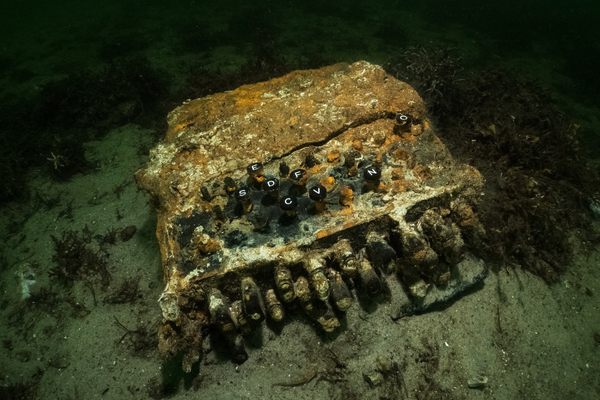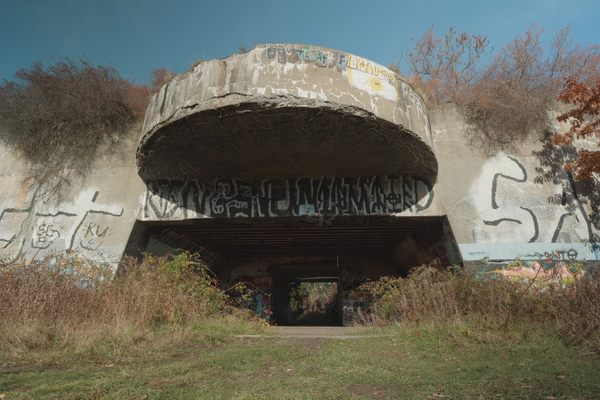A Piece of a WWII ‘Bouncing Bomb’ Washed Up on an English Beach
It was just for practice.

The dams of Germany’s industrial Ruhr Valley made for obvious targets for the Allies during World War II. In addition to hydroelectric power, they provided water for manufacturing, canals, and drinking. But despite being major pieces of infrastructure, the dams were surprisingly hard to take out, requiring multiple direct hits in the face of enemy fire.
A smaller bomb right up against the dam, underwater, would do the trick—if one could get it past the torpedo nets. So a bomb designer named Barnes Wallis came up with an ingenious solution: a drum-shaped bomb, dropped from an insanely low altitude and rapidly spinning backward, allowing it to skip across the water like a stone. It would hop the torpedo defenses before meeting the wall, where its leftover spin would then take it down the face of the dam.
Various tests and experiments were planned, including at Herne Bay in Kent, England, where café owner Lisa Clayton recently spotted a piece of one of the “practice” bombs (fortunately not live) along the shore, The Telegraph reports. “It’s quite exciting after all these years for this one to turn up, I’m pretty astounded by it,” Alan Porter, trustee of the Herne Bay seaside museum, told reporters. “We’re not quite sure what to do with it—it’s so heavy that we might leave it there, I like the idea of keeping it as a public sculpture.”
Operation Chastise, as the “dambuster” project was known, was a smashing military success. In May 1943, two dams were breached, the valley flooded, and both power stations and factories destroyed.












Follow us on Twitter to get the latest on the world's hidden wonders.
Like us on Facebook to get the latest on the world's hidden wonders.
Follow us on Twitter Like us on Facebook